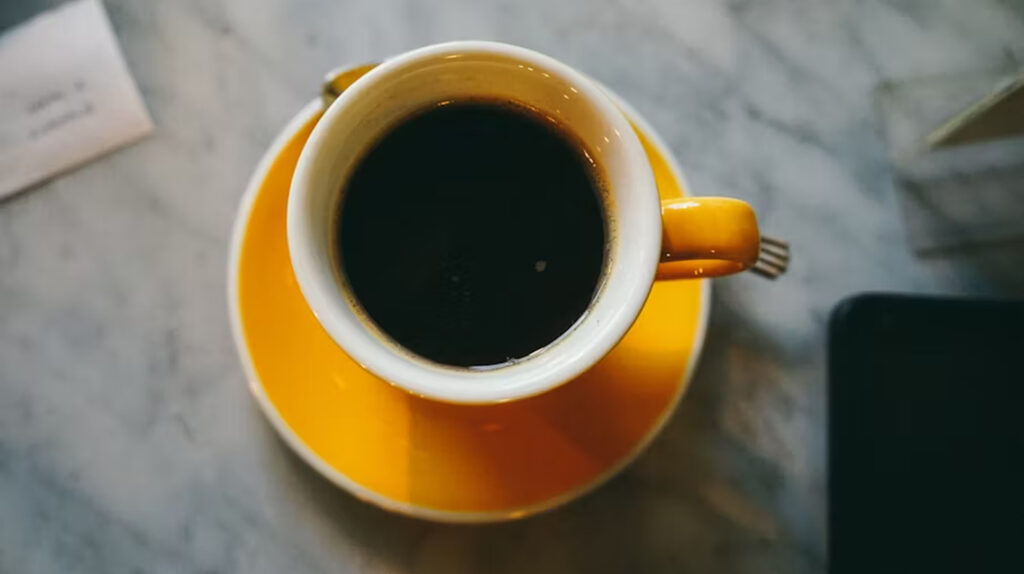“How do you balance caffeine intake for optimal mental clarity without experiencing negative side effects? What’s one strategy you’ve found particularly effective?”
Conscious consumption of caffeine
As a doctor, I usually recommend conscious consumption of caffeine to help sustain a clear mind without causing adverse effects, such as jitters and sleep disturbances. Among the effective strategies, which I can personally propose, is caffeine timing.
That will aid in maintaining concentration without overwhelming the body. I also scheduled a personal limit to caffeine intake after the middle of the day (about 2-3 PM) to preserve sleep quality, which plays a very significant role in cognitive performance. Drinking water and taking caffeine additionally reduce crashes or restlessness.
— Dr. Blen Tesfu, Physician at Welzo
Blen Tesfu, MD, Welzo
Delay your first caffeine intake for 90 to 120 minutes after you wake up
This is an excellent, practical question. As a psychiatrist, I see many people struggling with this exact issue because caffeine is a powerful psychoactive substance that directly impacts anxiety and sleep.
The single most effective strategy I recommend is this: Delay your first caffeine intake for 90 to 120 minutes after you wake up.
This simple behavioral shift is incredibly effective for two main reasons rooted in your body’s natural rhythm. First, your body produces its own potent wake-up signal in the morning, the hormone cortisol. Your cortisol level is at its highest in the first hour after waking. Drinking coffee during that peak is like turning on a loudspeaker during a thunderclap—it doesn’t add much, and it can actually make your body less sensitive to its own natural alerting signals over time, leading to tolerance and a need for more caffeine.
Second, a compound called adenosine builds up in your brain while you’re awake, creating “sleep pressure.” When you sleep, your brain clears it out. By waiting 90 minutes in the morning, you give your body time to clear out any remaining adenosine. If you drink caffeine immediately, you block the adenosine receptors, which can lead to a significant energy crash mid-afternoon.
By delaying your first cup, you ride your natural cortisol wave first, then use caffeine to strategically extend your alertness. This simple change often allows you to get more mental clarity from less caffeine, significantly reduces the chance of jitters or anxiety, and helps prevent the dreaded afternoon crash.
Ishdeep Narang, MD, Child, Adolescent & Adult Psychiatrist | Founder, ACES Psychiatry, Orlando, Florida
Timing my intake around my natural energy cycles
Finding the balance between caffeine for mental clarity without crashing or feeling jittery took some experimentation, but one strategy that’s worked for me is timing my intake around my natural energy cycles. I don’t have caffeine in the morning and instead have my first cup 90 minutes after waking. This allows my body’s natural cortisol levels to regulate without interference and I feel more alert naturally.
I also set a caffeine cutoff time—usually around 2 p.m.—to avoid sleep disruptions later on. Instead of reaching for more coffee when I feel an afternoon slump I opt for hydration and a short walk which surprisingly helps more than that extra cup.
The big insight I gained was caffeine is most effective when used intentionally, not habitually. I also switched to lower doses—like green tea or half-caf coffee—when I needed a smaller mental boost without the jitteriness. This helped me stay clear headed and focused especially during mentally demanding tasks without the crash.
Overall treating caffeine like a tool rather than a crutch has made it easier to get the benefits—mental clarity, focus and energy—without the downsides—anxiety, restlessness or disrupted sleep.
Sovic Chakrabarti, Director, Icy Tales
Caffeine timing
One simple strategy I use is “caffeine timing.” I avoid caffeine first thing in the morning and instead have my first cup around 10 a.m., after my body’s natural cortisol levels drop. This helps me stay alert without overloading my system early on.
I also stick to a caffeine cutoff time, usually 2 p.m., so it doesn’t affect my sleep, which in turn helps with clarity the next day. On high-focus days, I sip green tea instead of coffee in the afternoon. It gives a gentler lift and reduces jitters. The key here is being intentional, not habitual.
Kritika Kanodia, CEO, Estorytellers

